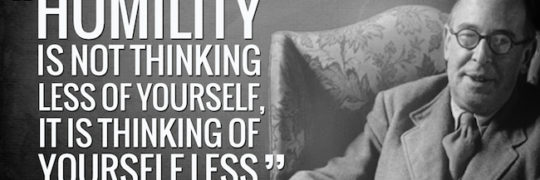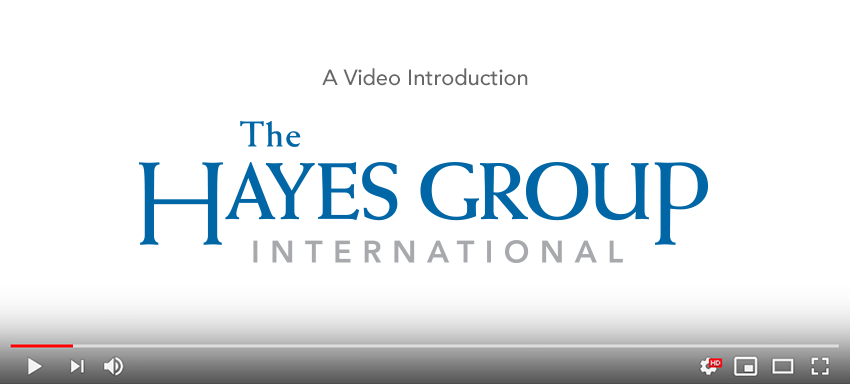Humility is what’s missing in our Presidential race

I must admit – I’m not a fan of any of this year’s presidential candidates! As someone who has devoted most of my career to studying and observing leaders, I see deficits across the board. However, I am convinced that many leaders (including our presidential ones) miss a key attribute that differentiates good leaders from great ones – humility.
Jim Collins in his best seller Good to Great was surprised to find that the most effective leaders he researched had not only “fierce resolve” but “humility” too.[1] Author Patrick Lencioni (whose allegorical books I have enjoyed and recommended to clients for years) recently reported that the ideal team player had three major interacting characteristics: hunger, people smarts, and humility.[2]
When my colleague Merwyn Hayes and I wrote Start with Humility: Lessons from America’s Quiet CEOS on how to Build Trust and Inspire Followers we realized that many people have a misconception regarding humility.
Humility is not:
- Weakness
- Lack of confidence, low self-esteem, absence of ego
- Lack of assertiveness, ambition or speaking out
The original Greek word for humility literally means “not rising far from the ground.” The original meaning of the English word “humble” refers to the Latin word hummas which like the ancient Greek also means “of the ground or earth”[3].
People follow leaders that they can connect with – who like them are flawed but can pick themselves up and move forward. In other words – leaders who are confident but not arrogant!
In our research we found that “humble leaders”:
- Admit mistakes
- Acknowledge when they were wrong (no cover-ups)
- Say when they don’t know
- Push decision making down (they don’t always have to be “right” or in the “limelight”)
- Communicate and relate well at all levels (connect and relate)
- Are transparent
- Manage emotions
- Are great listeners (and willing to learn from others)
- Acknowledge others accomplishments
Why is this so important in 2016? Fortune magazine’s recent cover stating “Every aspect of your business is about to change”[4] and the military’s research into VUCA (Volitality, Uncertainty, Complexity and Ambiguity)[5] calls for leaders to reassess how they lead in today’s constantly evolving business and political environments.
We found in our research that leaders who consistently practice certain “humble behaviors” (listed above) reap amazing results including:
- See greater innovations (because they are more approachable, constantly open to others’ ideas, better listeners)
- Are strong mentors (they are “others oriented,” so they build great bench strength for their organizations – people want to follow them)
- Get over the past quicker (not looking for blame or feeding their ego on how well they are doing – so mistakes become moments to learn and quickly move on)
- Can make and implement changes quicker (because people trust them to do the right thing – their transparency builds that trust)
So what should leaders do to practice these humble behaviors (besides reading our Start with Humility book):
- Humility begins with an accurate and honest self assessment. What habits do I need to adjust and still retain my “authentic core?” Asking some trusted friends for honest feedback is a place to start.
- Humility requires constant self-reflection. Great leaders stop and assess what is working for them and what is not – Why was that an effective meeting? Why did that interaction fail?
- Humility calls for “catching yourself in the moment” and re-adjusting. This comes with genuine honesty and allowing yourself to admit you are not perfect or that you don’t know the answer. Become comfortable with that – it will lead you far.
C.S. Lewis may have said it best – “True humility is not thinking less of yourself; it is thinking of yourself less.” Let’s make 2017 the year of starting with humility!
Click the article title to download What’s missing in our presidential race – Humility as a PDF.
[1] James C. Collins, Good to Great: Why Some Companies Make the Leap… and Others Don’t (HarperCollins Publisher, 2001)
[2] Patrick Lencioni, The Ideal Team Player: How to Recognize and Cultivate The Three Essential Virtues (Jossey-Bass, 2016)
[3] Soanes, Catherine (ed.) and Angus Stevenson (ed.), Oxford Dictionary of English (Oxford University Press, 2005).
[4] Colvin, Geoff. Every aspect of your business is about to change. Fortune, Nov., 2015
[5] Bennett, Nathan & Lemoine, G. James.. What VUCA really means for you. Harvard Business Review, Jan./Feb., 2014
Author
Michael D. Comer, D.M.

Mike is President of The Hayes Group International, Inc. He has over 30 years consulting experience with Fortune 500 companies, government agencies, non-profits as well as smaller organizations in organizational and team development, leadership assessment and development (executive coaching), and training development and delivery. In his role as President he oversees the work of 28 senior-level consultants. Mike started his career at Andersen Consulting (Accenture)… Read more »

